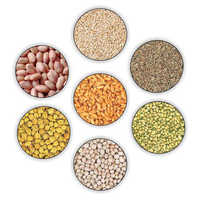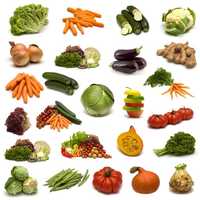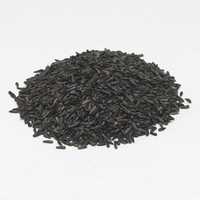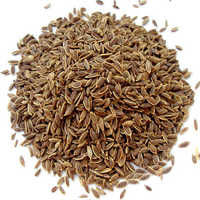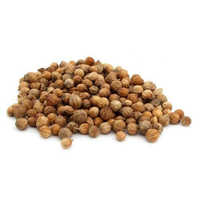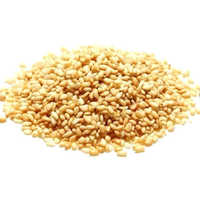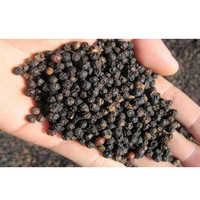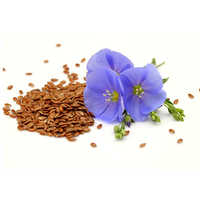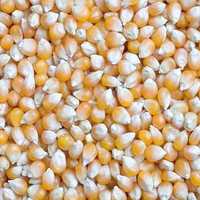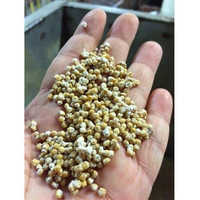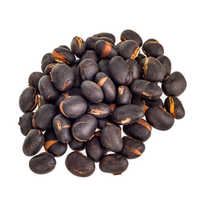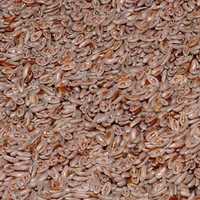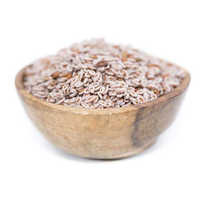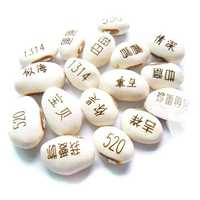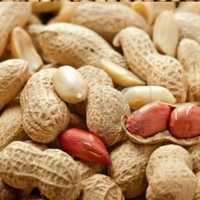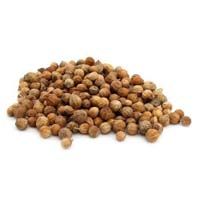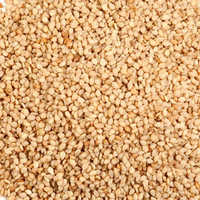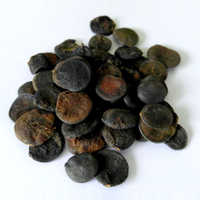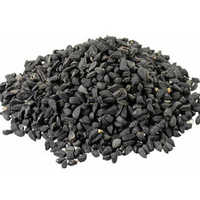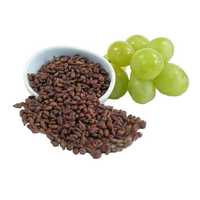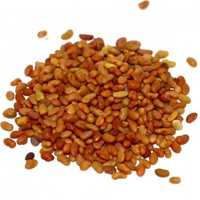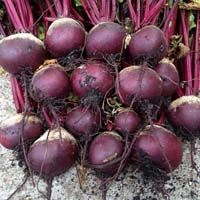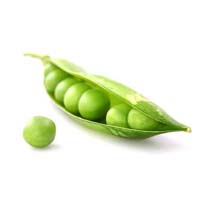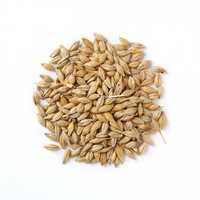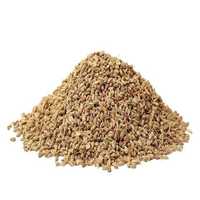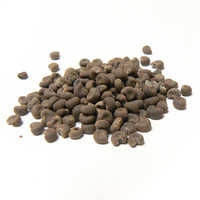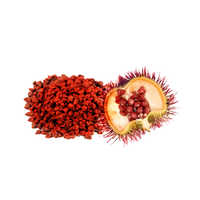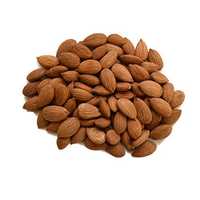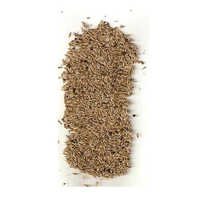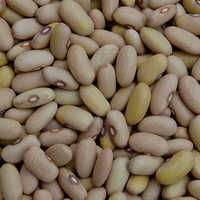Seeds
(26099 products)
Top Seeds Categories
Explore More Categories
Made in India
Organic Natural Finger Millet Seeds
Price Trend: 48000.00 - 52000.00 INR (Approx.)/Metric Ton
MOQ - 25-100 Metric Ton
Product Type - Finger Millet Seeds
Cultivation Type - Organic
Grade - Food grade
3 Years
Business Type: Exporter | Trading Company
REACH 2 FARM LLP
Verified Exporter
( Accepts only Foreign Inquiry)
Watermelon Seed
Price Trend: 190.00 - 195.00 INR (Approx.)/Kilograms
MOQ - 500 Kilograms/Kilograms
9 Years
Business Type: Manufacturer | Distributor
APEX INTERNATIONAL
Verified Exporter
( Accepts only Foreign Inquiry)
Made in India
Wheat Seeds
4 Years
Business Type: Exporter | Trading Company
FARMER EXIM
Made in India
High Quality Yellow Mustard Seeds
Product Type - Mustard Seeds
Color - Yellow
6 Years
Business Type: Manufacturer | Distributor
RATNARAJ FOODS
Made in India
Neem Seeds
4 Years
Business Type: Exporter | Trading Company
MEDUSA EXIM
Verified Exporter
( Accepts only Foreign Inquiry)
Made in India
Common White Polished Sorghum Seeds
Price: 2900 INR (Approx.)/Quintal
MOQ - 25 Quintal
Product Type - Sorghum Seeds
Cultivation Type - Common
Grade - Agriculture
2 Years
Business Type: Manufacturer | Trading Company
MARUTHI TRADERS & COMMISSION AGENTS
Indian Inquiries Only
Made in India
Common White Safflower Seeds
Price Trend: 130.00 - 140.00 INR (Approx.)/Kilograms
MOQ - 100 Kilograms/Kilograms
Product Type - Safflower Seeds
Type - Oil Seeds
Cultivation Type - Common
4 Years
Response Rate: 98.91%
Business Type: Manufacturer | Distributor
TROPICAL FOREST
Indian Inquiries Only
Made in India
Rapeseed Seed Grade: Food Grade
Price: 300 INR (Approx.)/Kilograms
MOQ - 1 Kilograms/Kilograms
Product Type - Rapeseed Seed
Type - Oil Seeds
Grade - Food Grade
2 Years
Business Type: Manufacturer | Exporter
YEDHANT INTERNATIONAL
Verified Exporter
( Accepts only Foreign Inquiry)
Made in India
Cumin Seed
Price: 1200 USD ($) (Approx.)/Foot
MOQ - 40 Foot/Feet,
8 Years
Business Type: Manufacturer | Distributor
BNJY ENTERPRISE
Verified Exporter
( Accepts only Foreign Inquiry)
Made in India
Common Natural Cumin Seeds
Price: 75 INR (Approx.)/Kilograms
MOQ - 100 Kilograms/Kilograms
Cultivation Type - Common
Grade - First Class
Moisture (%) - Nil
2 Years
Business Type: Supplier | Trading Company
AARCIS IMPEX PVT. LTD.
Groundnut Oil Refinery Machine
5 Years
Business Type: Manufacturer | Distributor
HENAN HUATAI CEREALS AND OILS MACHINERY CO.,LTD.
Common Tejas Sunflower Seeds
Price: 400 INR (Approx.)/Kilograms
MOQ - 50 Kilograms/Kilograms
Product Type - Tejas Sunflower Seeds
Cultivation Type - Common
Purity - High
3 Years
Business Type: Manufacturer
RESHMA CHEMICALS PVT. LTD.
Indian Inquiries Only
Made in India
Dried And Cleaned Premium Hybrid Cotton Seeds
Price: 850.00 INR (Approx.)/Kilograms
MOQ - 100 Kilograms/Kilograms
Product Type - Hybrid Cotton Seeds
Type - Oil Seeds
Cultivation Type - Organic
3 Years
Business Type: Exporter | Trading Company
GANDHI GLOBAL EXIM
Made in India
Green Carissa Carandas
Price Trend: 55.00 - 300.00 INR (Approx.)/Kilograms
MOQ - 1 Kilograms/Kilograms
Product Type - Carissa carandas
Type - Fruit Seeds
Grade - Food
12 Years
Business Type: Manufacturer | Distributor
Yesraj Enterprises
Made in India
A Grade Natural Flax Seed
Price: 120 INR (Approx.)/Kilograms
MOQ - 50 Kilograms/Kilograms
Product Type - Whole Pure Flax Seed
Type - Oil Seeds
Grade - A Grade
5 Years
Response Rate: 81.76%
Business Type: Distributor
ORCHESTRADE TECHNOLOGIES PRIVATE LIMITED
Made in India
Cumin Seeds
10 Years
Business Type: Manufacturer | Distributor
RITESH MOHANLAL & CO.
Made in India
Dried Makhana Seed Admixture (%): N/A
Price: 200 INR (Approx.)/Kilograms
MOQ - 1000 Kilograms/Kilograms
Color - Black
Cultivation Type - Conventional
Drying Process - Sun Drying
5 Years
Business Type: Manufacturer | Exporter
NU CREATIONS
Made in India
Orange Mace Seed
Price: 1 INR (Approx.)/Metric Ton
MOQ - 2 Metric Ton/Metric Tons
Product Type - Seeds
Type - Spices Seeds
Cultivation Type - Common
6 Years
Business Type: Manufacturer | Exporter
ARIZONE INTERNATIONAL LLP
Verified Exporter
( Accepts only Foreign Inquiry)
Organic White Sesame Moisture (%): 5.00%
Price: 140 INR (Approx.)/Kilograms
MOQ - 100 Kilograms/Kilograms
Product Type - White Sesame
Type - Oil Seeds
Moisture (%) - 5.00%
4 Years
Business Type: Manufacturer | Exporter
ACCEPT ORGANIC AND NATURAL PRODUCTS EXIM PRIVATE LIMITED
Made in India
Common Natural Coriander Seeds
Price: 120 INR (Approx.)/Kilograms
MOQ - 100 Kilograms/Kilograms
Cultivation Type - Common
Grade - First Class
Purity - High
2 Years
Business Type: Exporter | Trading Company
SUNSEEM INTERNATIONAL
Made in India
Common Ample Seeds Keshar Gold Bg Ii Cotton Seed
MOQ - 100 Pack/Packs
Cultivation Type - Common
Grade - First Class
Moisture (%) - Nil
2 Years
Business Type: Manufacturer | Distributor
Om Agro Industries
Gluten Free White Sesame Seeds
Price: 205 INR (Approx.)/Kilograms
MOQ - 500 Kilograms/Kilograms
Product Type - Sesame Seeds
Type - Oil Seeds
Cultivation Type - Normal
3 Years
Business Type: Manufacturer | Exporter
DESERT PRIDE GLOBAL
Made in India
A Grade Common Cultivated Indian Origin 100 Percent Purity Psoralea Corylifolia Seeds
Price: 800 INR (Approx.)/Kilograms
MOQ - 5 Kilograms/Kilograms
Product Type - Psoralea Corylifolia Seeds
Cultivation Type - Common
Grade - A
1 Years
Business Type: Manufacturer | Supplier
Suhani Agro Industries
Made in India
Green Fine Grade Big Fennel Seeds
MOQ - 10 Kilograms/Kilograms
Color - green
5 Years
Business Type: Manufacturer | Distributor
SHYAM DHANI INDUSTRIES PRIVATE LIMITED
Organic Black Shatavari Seeds
MOQ - 100 Kilograms/Kilograms
Product Type - Black Shatavari Seeds
Cultivation Type - Organic
Grade - Food
Business Type: Distributor | Supplier
Leela Traders
Made in India
Chia Seed Purity: 100%
Price Trend: 300.00 - 600.00 INR (Approx.)/Kilograms
MOQ - 30 Kilograms/Kilograms
Product Type - Chia Seed
Type - Spices Seeds
Purity - 100%
3 Years
Business Type: Manufacturer
PARADISE NUTS LIMITED
Indian Inquiries Only
Made in India
Organic Carom Seeds
MOQ - 100 Kilograms/Kilograms
Product Type - Carom Seeds
Type - Spices Seeds
Cultivation Type - Organic
Business Type: Supplier | Trading Company
PRM ENTERPRISES
Made in India
Butter Beans
Price Trend: 300.00 - 500.00 INR (Approx.)/Kilograms
MOQ - 100 Kilograms/Kilograms
19 Years
Business Type: Manufacturer | Supplier
SHREEJI TRADING
Verified Exporter
( Accepts only Foreign Inquiry)
Seeds Manufacturers | Suppliers in India
| Company Name | Location | Member Since |
|---|---|---|
| Shreeji Trading | Dahod, India | 19 Years |
| Yesraj Enterprises | Pune, India | 12 Years |
| Ritesh Mohanlal & Co. | Unjha, India | 10 Years |
| Apex International | Jaipur, India | 9 Years |
| Bnjy Enterprise | Kuching, Malaysia | 8 Years |
| Ratnaraj Foods | Ahmedabad, India | 6 Years |
| Arizone International Llp | Daman, India | 6 Years |
| Henan Huatai Cereals And Oils Machinery Co.,Ltd. | Zhengzhou, China | 5 Years |
| Orchestrade Technologies Private Limited | Navi Mumbai, India | 5 Years |
| Nu Creations | Araria, India | 5 Years |
What is a Seed?
- Radicle,
- Embryonal axis
- One cotyledon, in the case of wheat, maize, or Two cotyledons in the case of gram and pea.
Types of Seeds
- Monocotyledonous Seed
- Dicotyledonous Seed
- Seed Coat: This type of seed is mainly present in cereals such as maize and wheat. The seed consists of a seed coat that is membranous. This membranous seed coat is fused with the wall of the fruit and is known as the Hull.
- Endosperm: Another part is the endosperm which is somewhat huge, and this is where it stores food. These seeds are mainly endospermic however there are some that are non-endospermic e.g., orchids.
- Aleurone layer: The endosperm has an outer covering that separates the seeda s embryo. This is a proteinous layer which is known to be the aleurone layer.
- Embryo: Embryo is a part of the seed located at one end of the endosperm and is kept in a groove and is small in nature.
- Scutellum: This is a cotyledon that is large and shield-shaped.
- Embryonal axis: Radicle and plumule are two ends of a seed.
- Coleoptile and coleorhiza: They are plumule and radicle (coleoptile and coleorhiza) enclosed in sheaths
- Seed coat: The outermost covering is called the seed coat of a seed. It generally consists of two layers,
- Testa (outer) and
- the tegmen (inner).
- Embryo: This part has two cotyledons and the embryonal axis.
- Hilum: This is said to be a scar present on the seed coat. It is via this, that the seed is attached to the fruit.
- Micropyle: This is situated above the hilum.
- Cotyledons: The cotyledons are the fleshy part and are reserved with stored food materials.
- Radicle and plumule: Just like in the Monocotyledonous Seed, the Radicle and plumule are seen to be there at the two ends of the embryonal axis.
- Endosperm: the endosperm in the case of castor seed is formed due to double fertilization and it also stores food. Hence, it is a food storing tissue. However, in other plants like gram, bean, and pea, the endosperm is absent in the well-matured seed. These types of seeds are non-endospermic.
Seed Structure and Development
Export and Import of Seeds in India
FAQs: Seeds
Related Categories
Agricultural Machines & Tools
Agriculture & By-product Agents
Agriculture Product Stocks
Agro Chemicals
Agro Products & Commodities
Animal Casings
Animal Extract
Animal Fodders
Animal Husbandry
Animal Products
Aquaculture Equipment & Supplies
Aquatic Products
Bactericides
Bamboo & Rattan Products
Beans
Cashews
Cattle Feed Supplements
Cereals
Coconut
Coconut Shell Products
Coffee
Coir Blocks
Coir Fiber
Coir Products
Coir Rope
Dehydrated Vegetables
Dried Vegetables
EMU & EMU Products
EMU Eggs
EMU Meat
EMU Oil Products
Eggs
Farm Machinery
Farm Machinery Parts
Fertilizers
Fodder & Feed Additives
Fresh Fruits
Fresh Vegetables
Frozen & Dried Fruit
Frozen Vegetables
Fungicides
Garden Accessories
Grain
Greenhouse Supplies & Equipment
Guar Gum
Herbicides
Horticulture & Gardening Tools
Horticulture, Gardening & Irrigation Machinery
Insecticides
Irrigation Systems
Jute Products
Livestock
Molasses
Mushroom & Truffle
Nematicides
Nuts & Kernels
Oil Seed Extraction Machinery
Organic Vegetables
Pesticides
Plant & Animal Oil
Plant Extract
Plant Growth Regulator
Plant Seeds
Plant, Flowers & Dried Flowers
Potpourri
Poultry Equipment
Poultry Feed Supplements
Pulses
Raw Cotton & Cotton Waste
Rice
Seed Processing Machinery
Seeds
Shade Net
Soil Conditioners
Storage Silos
Tea
Tractor Parts
Tractors
Wheat
